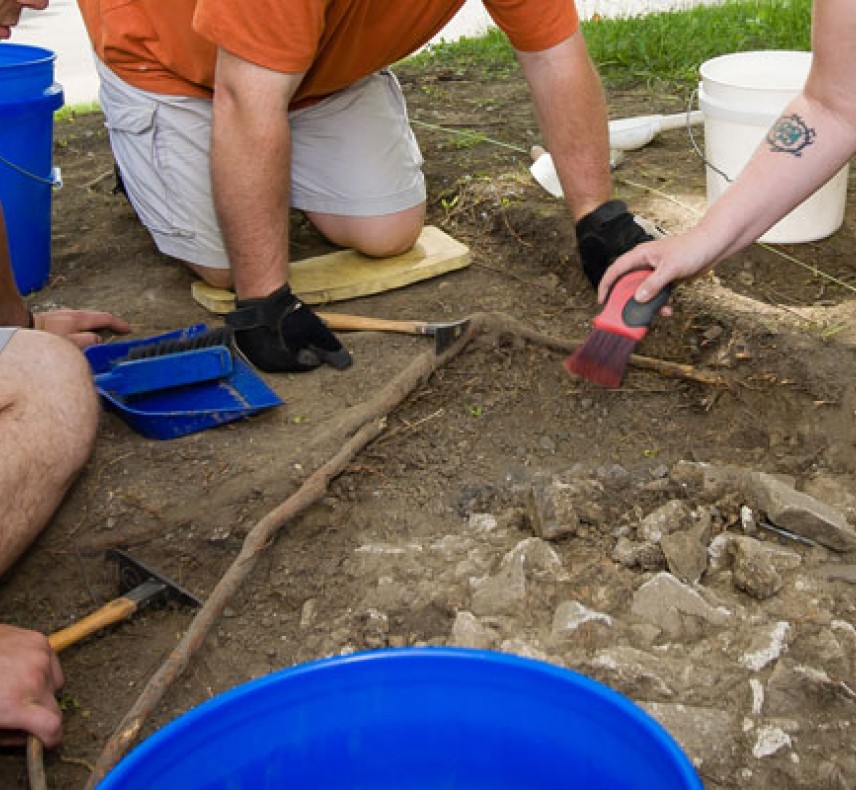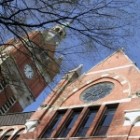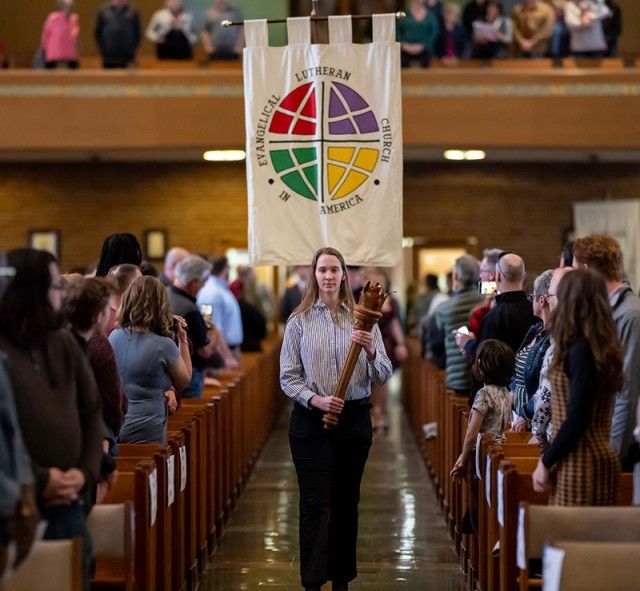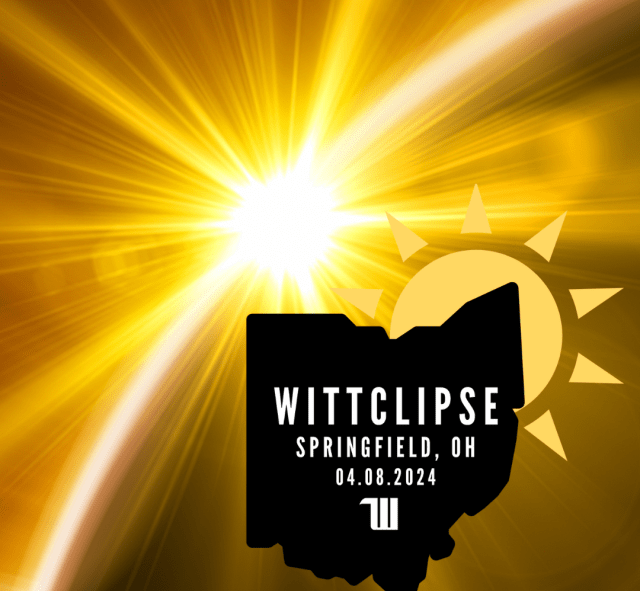Associate Professor of History Darlene Brooks Hedstrom knows that a transformative learning environment creates lifelong learners. Emphasizing the discovery of new knowledge by unearthing the past, the archaeologist used the summer to get students out of the classroom and make them dig a little deeper, literally.
Thanks to Wittenberg’s unique summer programs, students had the rare opportunity to engage in a collaborative, hands-on archaeological excavation right on campus.
“Archaeology is the ultimate group project in the liberal arts setting,” Brooks Hedstrom said. “I don’t already know what we’re going to find, so students learn how to look for the answers. They work together as a team and rely on each other’s work and effort to make the project a success.”
As part of Wittenberg’s new Maymester program, May 13–June 1, Brooks Hedstrom selected Lot 3777, a late 19th century property on the corner of West College and North Wittenberg avenues, for the excavation site. The original property was purchased from Wittenberg College in 1882. The house built there was remodeled in 1936 and demolished in 2012. Over the years, the house has most notably been home to the Rev. Michael Wolfe Hamma, the Alpha Xi Delta sorority and the Phi Kappa Psi fraternity.
After studying local excavation reports from the 1930s at the Clark County Heritage Center, the “Archaeological Field Methods” class met on-site daily. The four students surveyed the lot and used hand picks, trowels, brushes and screens to carefully unearth nails and pulleys dating back to the original Victorian-style structure.
“We bring together scientific recording with a desire to study the past, and students can see how geology, geography, history, and literature studies go hand-in-hand,” Brooks Hedstrom explained.
Following the Maymester class, Wittenberg’s Summer College program then enabled 16 incoming students to excavate Lot 3776, where the property’s garage once stood.
Co-leaders Associate Professor of English Carmiele Wilkerson and Brooks Hedstrom designed the “Digging Up Our Past” course to introduce students to using archival research, artifacts and writing to tell stories about Wittenberg’s past and their own. The class began removing the original 19th century brick floor and unearthed timbers used to support the surface. Volunteers from the class will continue brick removal and excavation, even though the course has concluded.
Brooks Hedstrom sees opportunities like these as true examples of collaborative student-faculty research. The students see abundant opportunities for lifelong learning.
“This class has been a great start to my college experience,” Jayde Glaser, class of 2017 from Shadyside, Ohio, said. “I’m learning by researching in new ways and seeing how two very different subjects work together, and that’s what you have to be ready for at a liberal arts school.”
“My greatest joy,” Brooks Hedstrom said, “is teaching archaeology for this very reason—together we rediscover the past.”
Written By: Leigh Hall '13
Video By: Megan Conkle '14
Students who participated in the Maymester course include Mark Swope, class of 2014 from Fairborn, Ohio; Deanna Iwanyckyj, class of 2015 from Water Mill, N.Y.; William Hennigan, community education students from South Charleston, Ohio; Caitlin Lobl, class of 2016 from Springfield, Ohio.
Students in the class of 2017 who participated in the Summer College course include Addison Coldren, from Gallipolis, Ohio; Michaela Freeman; Jayde Glaser, from Shadyside, Ohio; Davante Goins, from Columbus, Ohio; Lauren Hickey, from Lexington, Ky.; Karina Kowalski, from Put-In-Bay, Ohio; Connor McCarthy, from Sandbornton, N.H.; Kyle Monyem; Chrioni Morcom; Erin Murray, from Yorktown, Ind.; James Robertson; Kristina Schopper, from Waukegan, Ill.; Kyle Sowa, from Carol Stream, Ill.; Celina Thompson, from Toledo, Ohio; Justin Wilhite, from Cleveland, Ohio.






